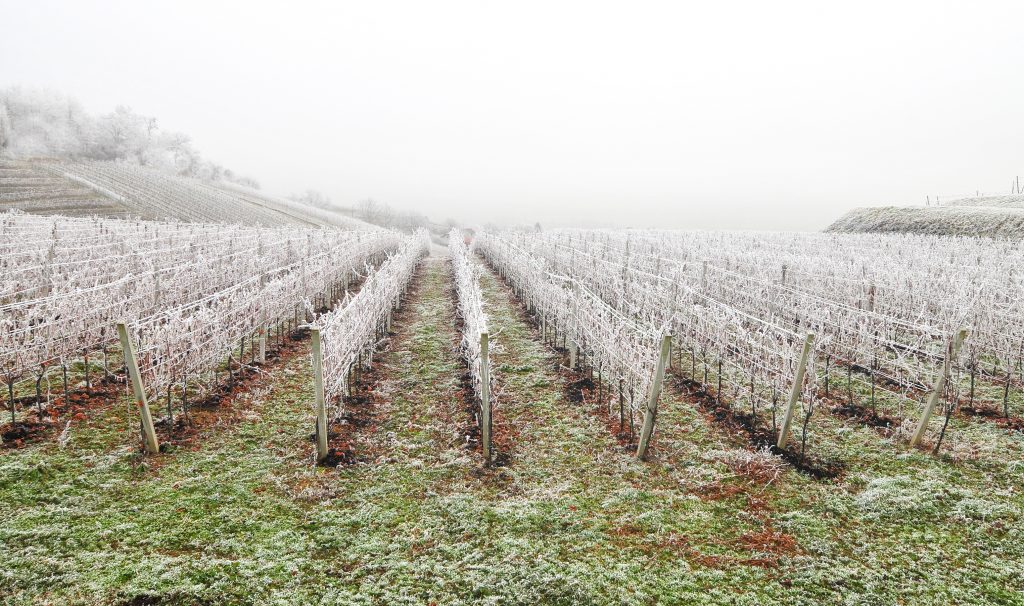This website uses cookies so that we can provide you with the best user experience possible. Cookie information is stored in your browser and performs functions such as recognising you when you return to our website and helping our team to understand which sections of the website you find most interesting and useful.
‘Who would grow grapes for a living?’ – Jonathan Pedley, MW on France’s 2021 harvest
Many of us having been following the grim news coming out of France over the last few months. Vicious spring frosts have been followed by torrential summer rain (just rewatch stages 8 and 9 of the Tour de France).

Recently, the drinks business reported that the French Agriculture Ministry was comparing the current year with 1977. The national crop could be down by 24-30%.
When I started in the wine trade in the mid-eighties, 1977 was one of those mediocre vintages from the previous decade that occasionally came up in conversation. Senior colleagues would mutter darkly about the Oil Crisis, Arthur Scargill, punitive tax rates and 1972/1973/1974/1977. Fortunately, most of the wine that was made that year had long since disappeared so I was not expected to sell the stuff.
It could be argued that the 1970s was the last decade when there were a significant number of poor vintages. From a Bordeaux perspective everything seemed to change in the 1980s, with 1982 ushering in a golden age. As well as huge investment in the vineyards and wineries, I remember the late great Paul Pontallier saying that weather-wise 1978 was the final “old fashioned” Bordeaux vintage, where a cold spring and coolish summer were followed by a glorious autumn that allowed the picking to start on 9th October (a lot of modern harvests are almost finished by then).
Now it would be hard to argue that 1977 had a direct impact on the UK on-trade (a lot of the damage had been done before then). By contrast, 1991 was a frost-blighted vintage that I did work with and it had some pretty drastic short term, and arguably longer term, effects on what pubs and restaurants sold. For many businesses the wine at the centre of this weather
event was not fancy red Bordeaux but dear old Muscadet.
It will doubtless surprise younger readers to discover that by the late 1980s Muscadet had become hugely popular in the restaurants and pubs of Britain. To say that a standard bar call was “Two pints of Muscadet and a packet of crisps” is something of an exaggeration but it contains a kernel of truth.
The spring frost in 1991 hit the Pays Nantais hard. Existing stocks of Muscadet were rapidly exhausted and what allocations could be secured had shot up in price. The result was that many accounts delisted Muscadet. Some outlets switched to Soave and Frascati (Pinot Grigio had yet to take off in the UK), whilst others experimented with New World whites for the
first time.
Very few ever returned to Muscadet, despite normal availability resuming within a couple of years.
To claim that the 1991 frost single handedly erased Muscadet from a nation’s wine lists and laid the foundations for the later triumph of Italian Pinot Grigio and Chilean Sauvignon Blanc is clearly ludicrous. However, it did encourage naturally conservative licensees to experiment with wines that they might not have encountered until much later.
Commentators are saying the same sort of things about alterations in behaviour precipitated by Covid-19: there were existing trends toward home working and online shopping – the pandemic has merely accelerated the rate of change.
Compared to the early 1990s we do today have a more diverse supply base than we did. The classic regions of France no longer monopolise the premium end of wine lists. If an outlet stocks a white Burgundy, it is there because they want it there, not because there is nothing else available or they feel it must have it.
That said, the current frost crisis may further weaken the already tenuous link between many parts of the on-trade and the benchmark French wines we grew up with. I read an email last week from a major bottler announcing that stocks of a key generic Chablis were already exhausted; there is no 2020 left and there will be precious little 2021 available next spring. If, God willing, there is a decent sized crop in 2022 there may be wine available in the second quarter of 2023 – nearly two years hence.
A lot of pubs and restaurants will simply scrub Chablis from their lists and probably never reinstate it.
I hope that I am being pessimistic. It would be a shame if the likes of Chablis, Sancerre and dare one say it, Picpoul, disappeared forever from ordinary wine lists.
Jonathan Pedley, MW
Related news
Senior execs at Constellation Brands offload shares

